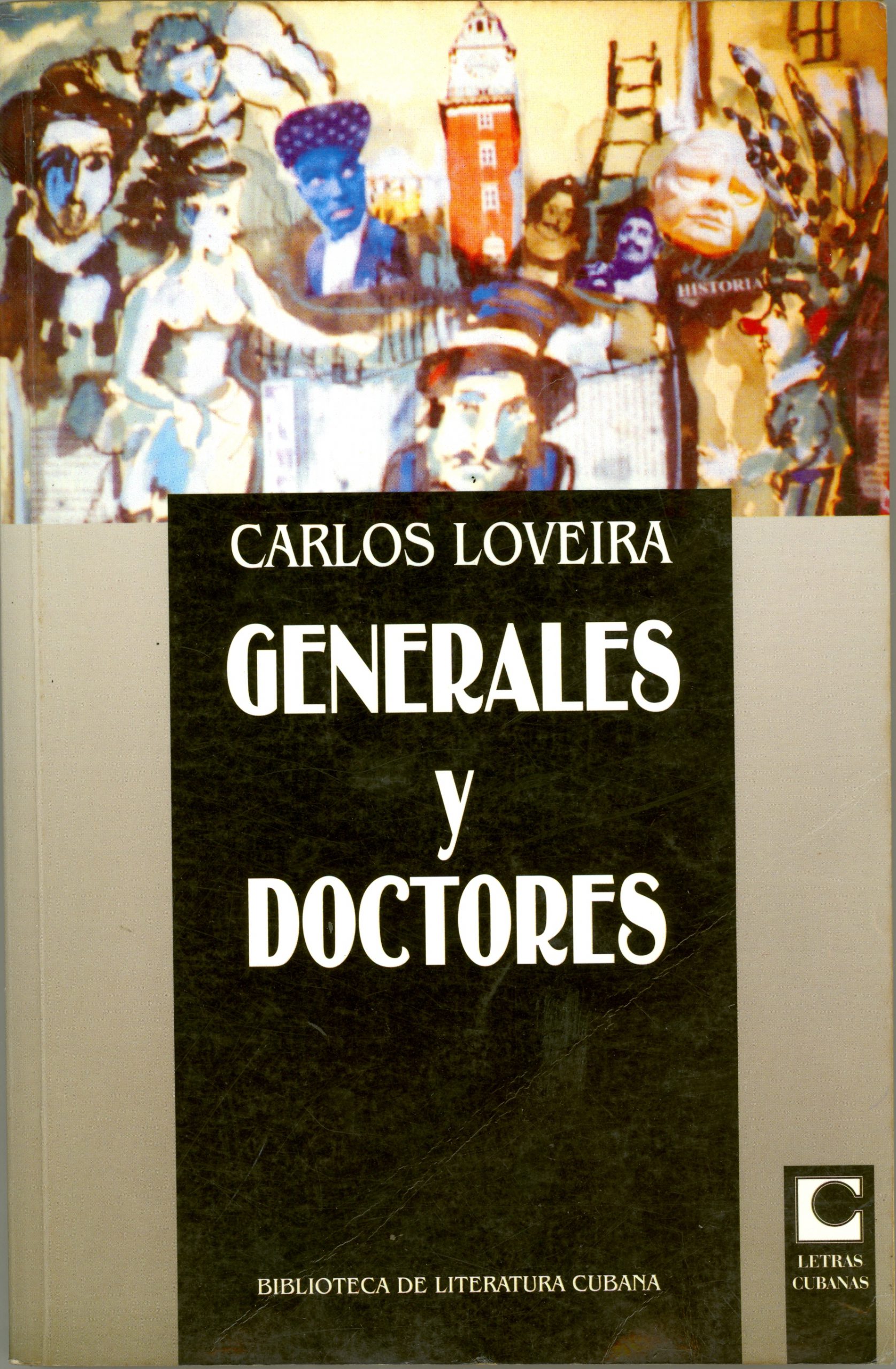4.2.5.2 “Generals and Doctors”, by Carlos Loveira (1881 – 1928)

“Generals and Doctors,” written in 1920, critically addresses the period following the end of Spanish rule and the establishment of the Republic, as well as the subsequent political and social situation. Although its perspective is rather pessimistic, it did not adopt the bitter tone of other writers and presented its reflections from a perspective associated with the so-called Cuban mockery, while remaining incisive in its unveiling of the colonial reality and the dawn of the republic.
The work consists of three chapters, entitled “In days of sadness and doubt”, “In days of faith and heroism” and “In days of uncertainty and bewilderment” whose very titles reflect in a certain way the futility of the revolutionary conflagration, the return of uncertainty, the collapse of hopes and the deposition of the warlike attitude, transforming a reality adverse to the national being.
The narrative sequence is linear, beginning in 1875, when the failure of the liberation effort was already looming and the Island would continue to be dominated by the Spanish authorities and finally the political game after the Pact of Zanjón, which reflects the rise of autonomism and the gradual gestation of a new hotbed of independence, all of which corresponds to the aforementioned first chapter, which does not cease to reflect the economic interests that support colonialism and even the death of “poor Galicians.”
The second chapter focuses primarily on the context of emigration in the United States and the patriotic enthusiasm felt during the revolutionary outbreak of 1895. He repeatedly alludes reverently to some of the fathers of independence and the “new pines,” the former hardened by the heat of the 1868 feat, while the latter suffered the rigors of emigration. On this subject, he also includes assessments of the social situation of the poorest people living across the island:
“They were the poor emigrants, all registered as volunteers on the junta; eager to fly to the Cuban countryside on those expeditions that, unfortunately, were few and far between. They were the exiles who left no possessions in Cuba, nor expected monthly payments, nor knew English; who shivered, frozen inside their shabby coats; who, to come to the docks in search of travelers for the hotels, sloshed through the snow along the endless avenues, with their shoes and socks holey from overuse; who never missed a rally, carried Trujillo’s newspaper and pamphlets with Sanguily’s speeches in their pockets, and proudly displayed, in the buttonhole of their worn-out overcoats, the tricolor flag of their dreams.”
The final chapter alludes to the establishment of the Republic and the rapid emergence of a political class aspiring to all sorts of privileges, leading to corruption. North American domination is hinted at in some passages, but it is only a glimpse, as Loveira focuses more on the political and social landscape without delving into its neocolonial undertones. Nevertheless, he always sides with the dispossessed and paints a vivid portrait of the great social divide, in some ways a precursor to Fidel’s thought, captured in “History Will Absolve Me”:
“Here there are two categories of people. (…) One, which is the one that truly works, is persecuted, lacking the protective legislation recognized (…) in Spain itself. The other, seduced by the triumphs of political careerism, takes part in electoral masquerades, hunting for the nomination or the “nomination,” with which the number of budget scroungers grows every day.”
The aforementioned Cuban joking permeates almost every passage, even the emotionally charged ones, from the school childhood of the protagonist and narrator, Ignacio García; In this sense, the use of typically Cuban words and expressions of language also stands out, both from popular sources and as a reflection of colloquial vocabulary, in words like cuchufleta, buscapleitos, marchantería, dar pie con bola, etc.
Although the author’s aforementioned pessimistic tone permeates much of the text, the work’s colophon opens a door to hope, perhaps expressed in a profound transformation, subtly conveyed: “I am an optimist, for the people; although on the difficult path ahead we may have to stop and sing “Closer to You, My God” to the first attempt at a republic, eaten away as if by cancer by the fatal plague of generals and doctors.”








